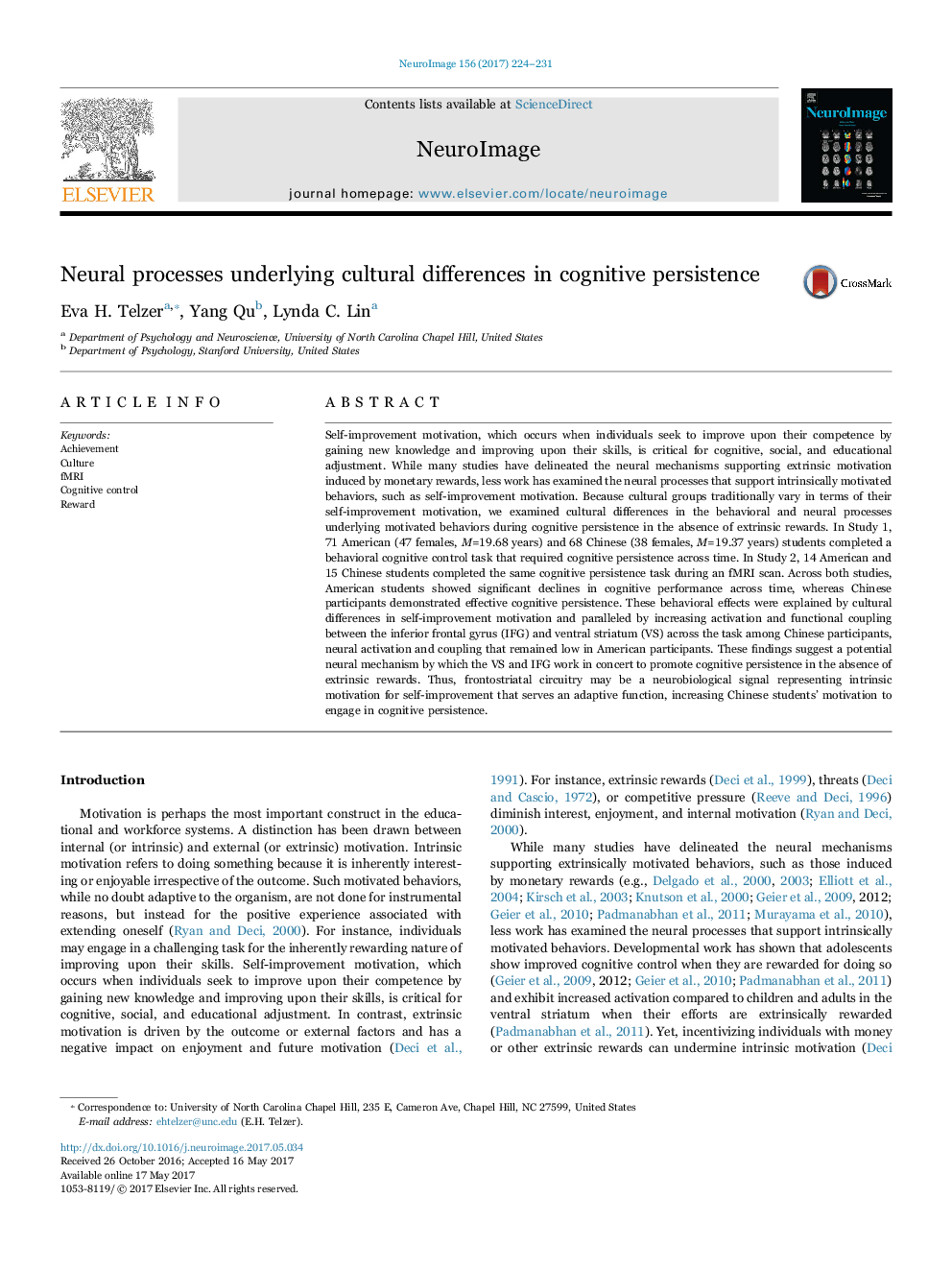ترجمه فارسی عنوان مقاله
فرایندهای عصبی که اختلافات فرهنگی را در تداوم شناختی مطرح می کنند
عنوان انگلیسی
Neural processes underlying cultural differences in cognitive persistence
| کد مقاله | سال انتشار | تعداد صفحات مقاله انگلیسی |
|---|---|---|
| 144647 | 2017 | 8 صفحه PDF |
منبع

Publisher : Elsevier - Science Direct (الزویر - ساینس دایرکت)
Journal : NeuroImage, Volume 156, 1 August 2017, Pages 224-231

